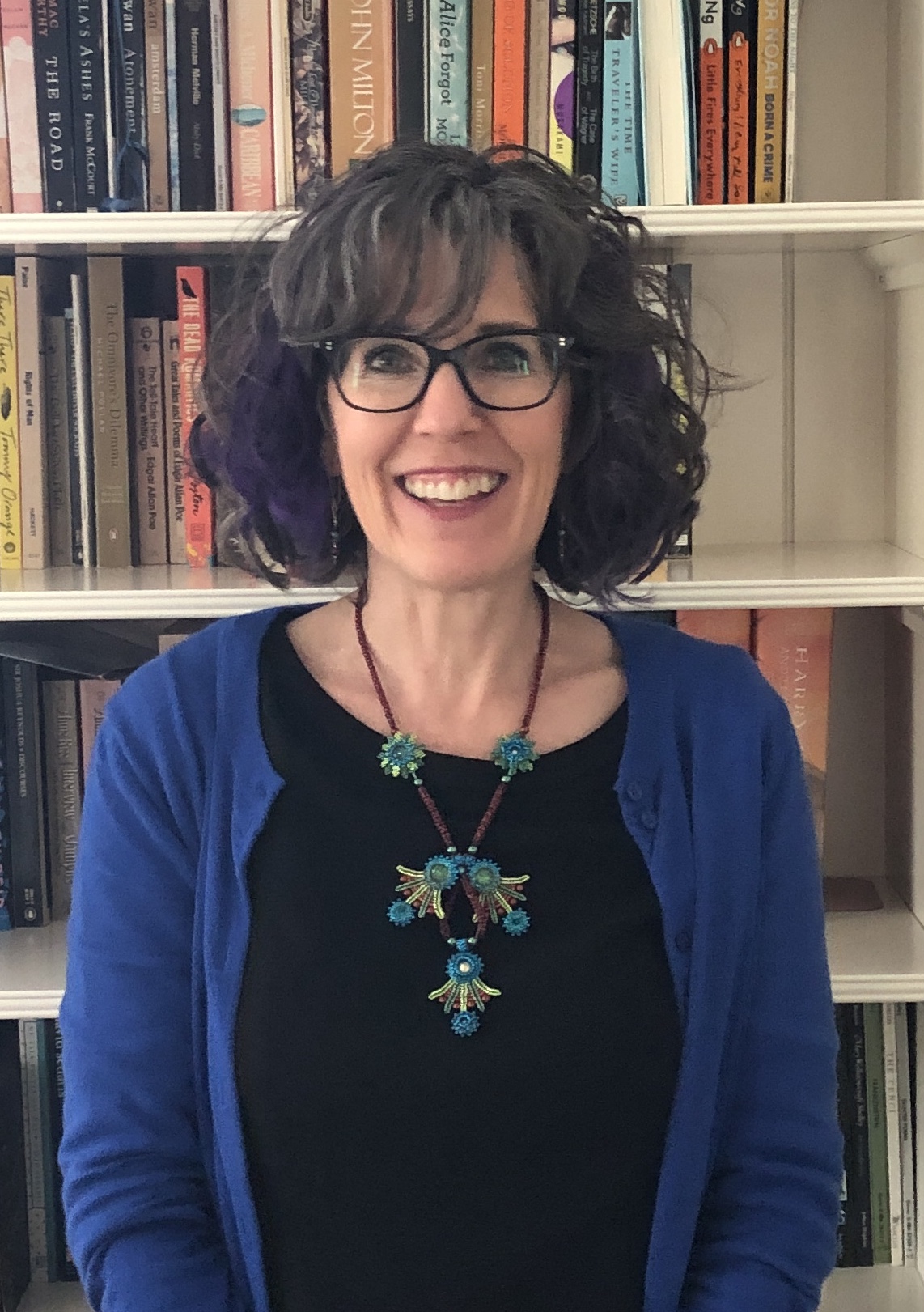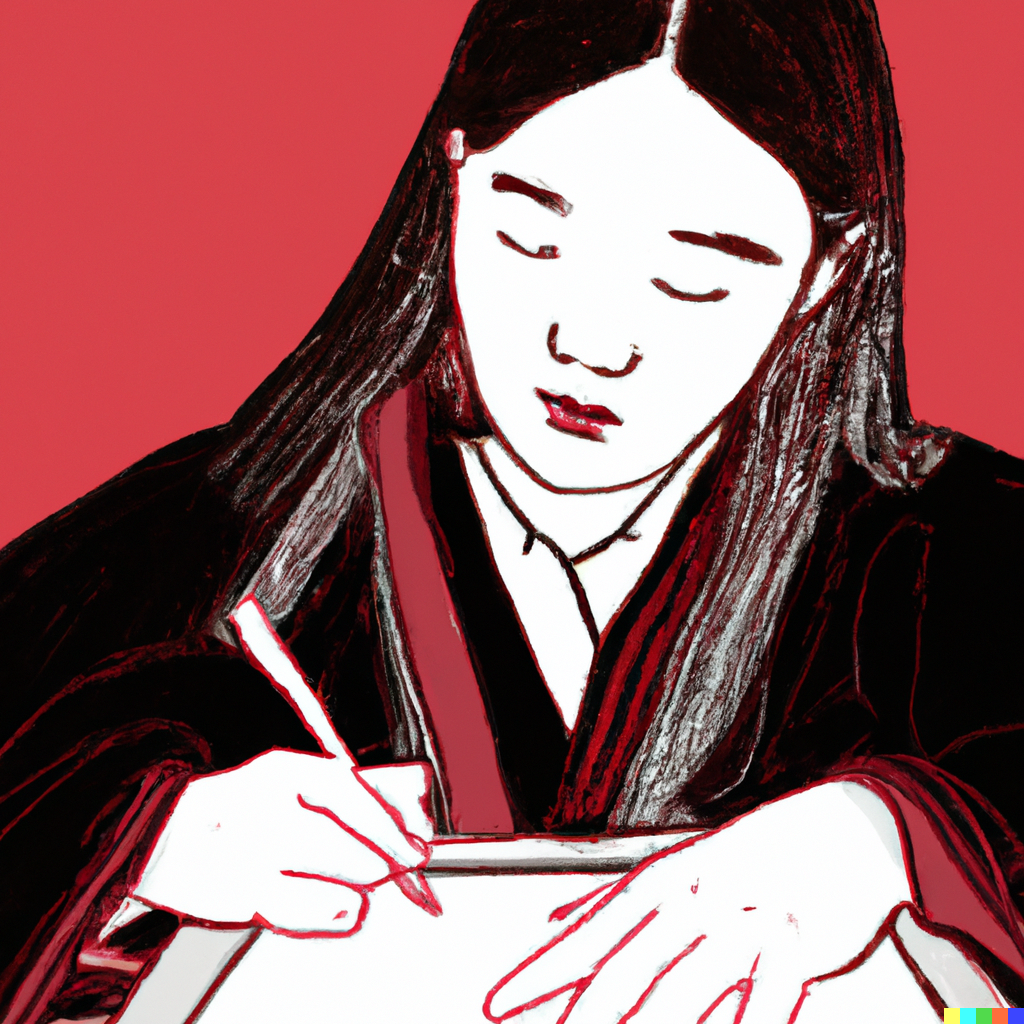Part of being human means that we share a common experience of what it means to be a part of humanity. This common body of experience is known as the human condition. Literature comprises written works of the imagination that offer its readers a constellation of glimpses of this human condition.
To obtain an academic perspective on how literature describes the condition in which humans find themselves, as well as other ways literature relates to its readers, The Telescope interviewed Professor Leanne Maunu, Professor of English and Chair of the Department of English, Humanities and Reading at Palomar College.

Professor Leanne Maunu
So, the question is, what does literature teach us about the human condition?
Maunu believes literature is instructive in helping us to see how we as humans are interconnected. “[Literature] teaches us that we are connected through the experiences we share—that others have gone through the same things we have,” Maunu said.
Situations in which humans are placed, as well as those in which they place themselves, appear in literature in a way that the reader can recognize. This experience of what it feels like to be the character one is reading about is known as a vicarious experience.
Through partaking in the lives of characters vicariously, “Literature can be a touchstone for us to see how others have responded to certain situations,” said Maunu. In this way, Maunu believes we can develop our values.
“When we read about other people’s experiences, we can put ourselves in their shoes and envision what other people experience,” Maunu said.
Maunu believes humans have an intrinsic need to read stories. “Humans have always told stories, even when they passed them down orally. I think we’re drawn to listening to and reading stories because we have so much to learn from others.”
Since humans have always told stories, it is important to look at the language in which stories were told in the past.
“Learning the history of words helps the reader learn that words have a lot of different meanings,” Maunu said. By looking at a word’s history, the reader of literature comes to learn what is new about a word and how this meaning is different from the way the word was used in the former days.
Knowing history in general and more specifically the history of language helps us to know how language evolves. Maunu believes in the importance of knowing that language is flexible.
“Shakespeare invented so many words that didn’t exist,” Maunu said. “We need to understand that language can change. Dr. Johnson, who invented the first dictionary, tried to fix the language, but language never really is fixed. Language is fluid and always evolving,”
Understanding what past authors wrote helps readers of literature see what can be done with language. “By studying literature, the reader can see what is possible in the expression of ideas, which in turn helps them learn what is possible to express in their own ideas,” Maunu said.
Maunu believes opening up literature opens up new worlds to readers. She finds value in looking at historical words to see what happened in the past. And learning these past lessons helps us understand the modern world.
“Reading literature helps us to see how past authors grappled with the big questions and great concerns,” she said, “allowing us to see other people’s experiences and points of view.”
“Reading literature is also very important because doing so helps us increase our empathy for others.”
Empathy has become the subject of neuroscience since the early 2000s after it was discovered that the human brain has special nerve cells known as mirror neurons that react when a person perceives others interacting or experiencing emotions.
According to a 2013 study done by professors Sourya Acharya and Samarth Shukla, “Mirror neurons fire in the same way when we actually recreate that action ourselves.” Humans develop these neurons when they see people communicating, which includes characters communicating in literature.
Through reading literature, we experience another’s point of view along with possible accompanying emotions. Since we experience these emotions as our own through the activation of mirror neurons, we come to understand and share the feelings of the characters in literature because we have cognitively experienced them vicariously.
Because emotions frequently felt tend to recur across a range of related experiences, the empathic emotions felt when we witness communication in literature can be reawakened in us when witnessing similar communication in our personal life. In this way empathy gained through literature translates into empathy for beings in our own lived experiences.
Additional evidence that reading literature can develop empathy in readers has been increasingly evident across a range of studies correlating the reading of literature with empathy.
An experiment published in 2005 in the Science Direct journal found that readers familiar with the work of well-known literary authors score high on tests for empathy.
Another study in Science magazine in 2013 found that readers who were assigned to read literary fiction, in comparison with participants who were assigned to read other types of material or none at all, scored higher on subsequent tests measuring levels of empathy.
Both of these tests measure empathy based on familiarity with the classics of literature. Maunu believes studying the classics is a valuable practice because of the empathy it instills. However, she believes the study of the classics should be balanced with reading more contemporary literature.
“For too long, writers of color, LGBTQIA, and women writers were excluded from the canon, so it’s important to ensure that their voices are heard,” Maunu said. Studying the works of authors whose works fall into these categories as well as the classics helps readers to expand their circle of empathy to encompass all walks of life.
Historically underrepresented populations in Western culture are not the only new voices being heard by readers of literature. The study of literature from around the world has been introduced into the halls of academia now as well.
Reflecting this trend, Maunu teaches World Literature in which she includes texts from Japanese, Nigerian, and Russian literature among other works in the non-Western as well as Western literary canons. Maunu said the lessons of literature help us to see our common humanity.
Maunu believes the study of literature gives us the ability to look at other people’s worlds and experiences, an ability that broadens our world and broadens our minds.
Image Sources
- Professor Leanne Maunu: Photo courtesy of Leanne Maunu | Used With Permission
- JasonPacheEnglishInterview DALL·E 2.png: DALL·E 2 | Public Domain Mark 1.0


Comments are closed, but trackbacks and pingbacks are open.